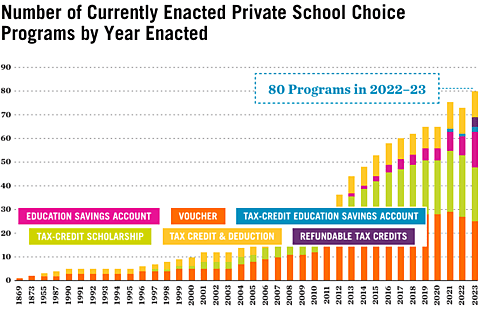Thomas A. Berry and Ethan Yang
In March 2022, the FBI raided a private vault company, seizing any boxes holding over $5,000. The raid was executed on the purported suspicion that such funds had illegal origins. Without express authorization from a warrant, the agency seized over 400 safes, including one belonging to Linda Martin. Martin was an innocent patron of the vault, using it to set aside money for a house. The FBI seized $40,200 from her safe, intending to keep and spend her money.
This procedure, in which the government permanently confiscates any property that it claims to be connected to criminal activity, is known as civil forfeiture. Two months after this seizure, Martin received a notice from the FBI stating only that her funds had been seized pursuant to a general law that itself references hundreds of potential criminal statutes. The notice gave no explanation of her alleged wrongdoing. When she questioned the FBI about the return of her money, the agency put her through more than two years of a slow and confusing internal petition process that ultimately did not result in the return of her funds. Martin then proceeded to launch a class action lawsuit challenging the constitutionality of the FBI’s forfeiture proceedings, arguing that they deprived property owners of their due process rights. Only after Martin brought her suit did the FBI finally return her money.
A federal district court sided with the FBI, holding that Martin should have exhausted all potential internal remedies with the FBI before suing. But Martin is appealing that decision, and Cato has filed an amicus brief supporting her.
In our brief, we outline the perverse incentives that influence forfeiture proceedings, which often lead to egregious violations of constitutional rights. The FBI has a tremendous monetary interest in confiscating as many assets as possible, because these funds are used to finance the agency. Furthermore, the FBI’s ability to use administrative forfeiture procedures means that the agency doesn’t need to go to court to justify its takings. Instead, the FBI can internally approve its own actions. This places the burden on victims to challenge forfeiture orders, often at great cost. And the monetary incentive is even more perverse at the state and local level, where underfunded law enforcement agencies often derive large portions of their budget from the proceeds of forfeiture.
As our brief recounts, civil forfeiture was not always a problematic money-making scheme for law enforcement. Prior to the passage of the Comprehensive Crime Control Act (CCCA) in 1984, civil forfeiture actions typically respected the rule of law. Unlike the notices of today, law enforcement agencies made efforts to list the specific law violated and the nature of the infraction. That is because the historic purpose of civil forfeiture was not to seize anything of value associated with crime but instead to target the specific assets of suspects that could not be easily prosecuted, such as pirates and smugglers. That changed after the CCCA significantly raised the maximum confiscation amount and established a federal forfeiture fund.
Modern civil forfeiture is destroying the livelihoods and liberties of innocent Americans. The court of appeals should reverse the lower court and make clear that victims of civil forfeiture have a due process right to a straightforward and timely procedure for the return of their property.




















